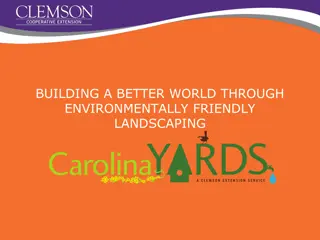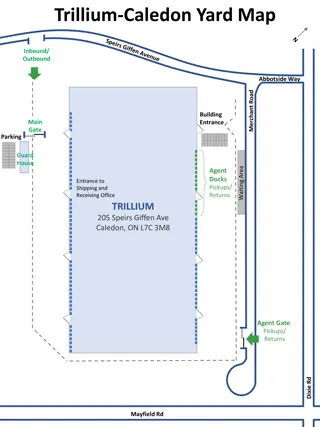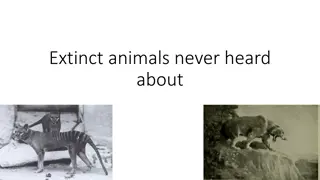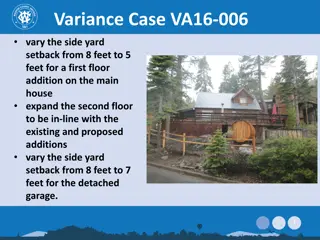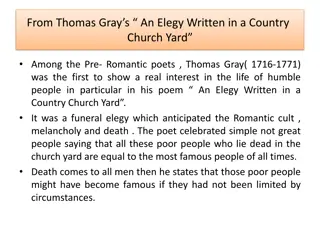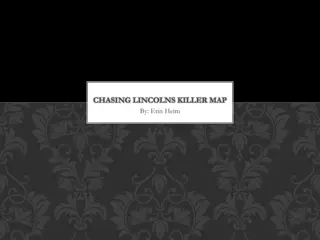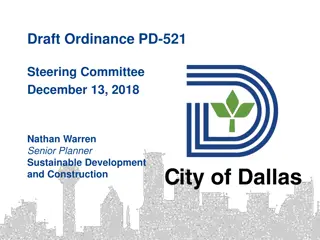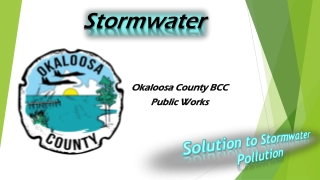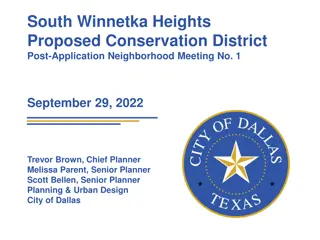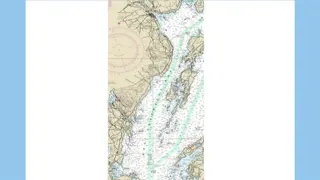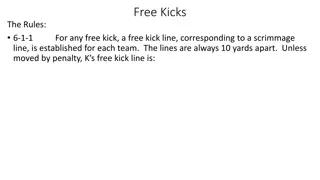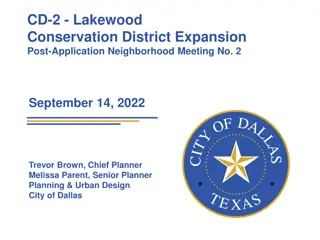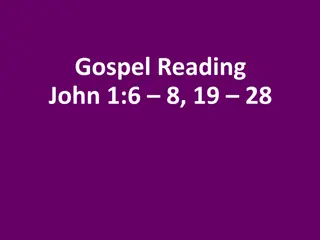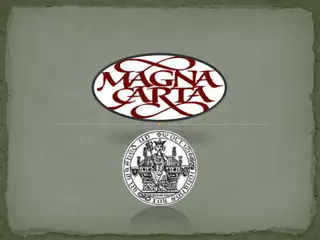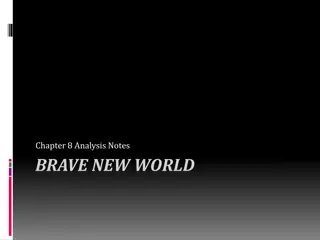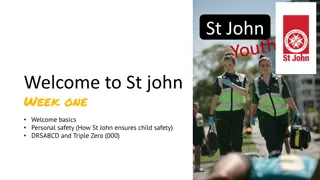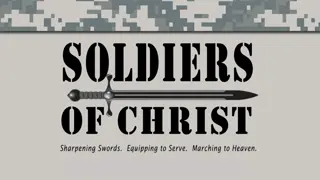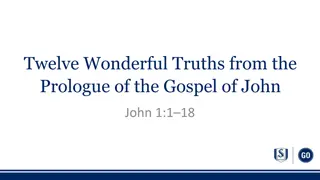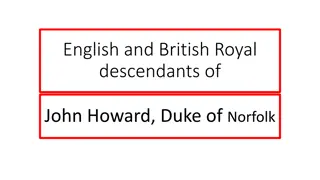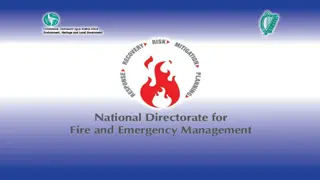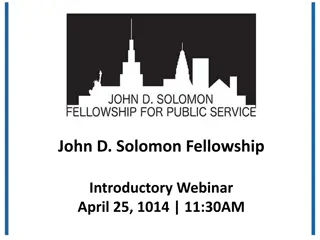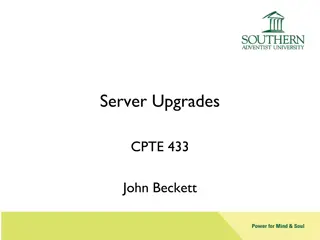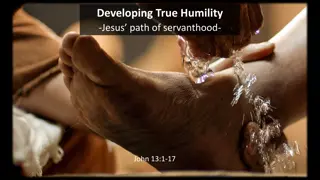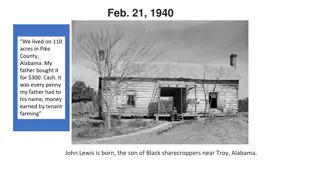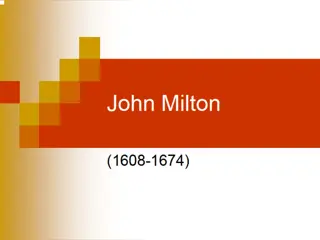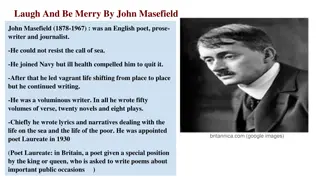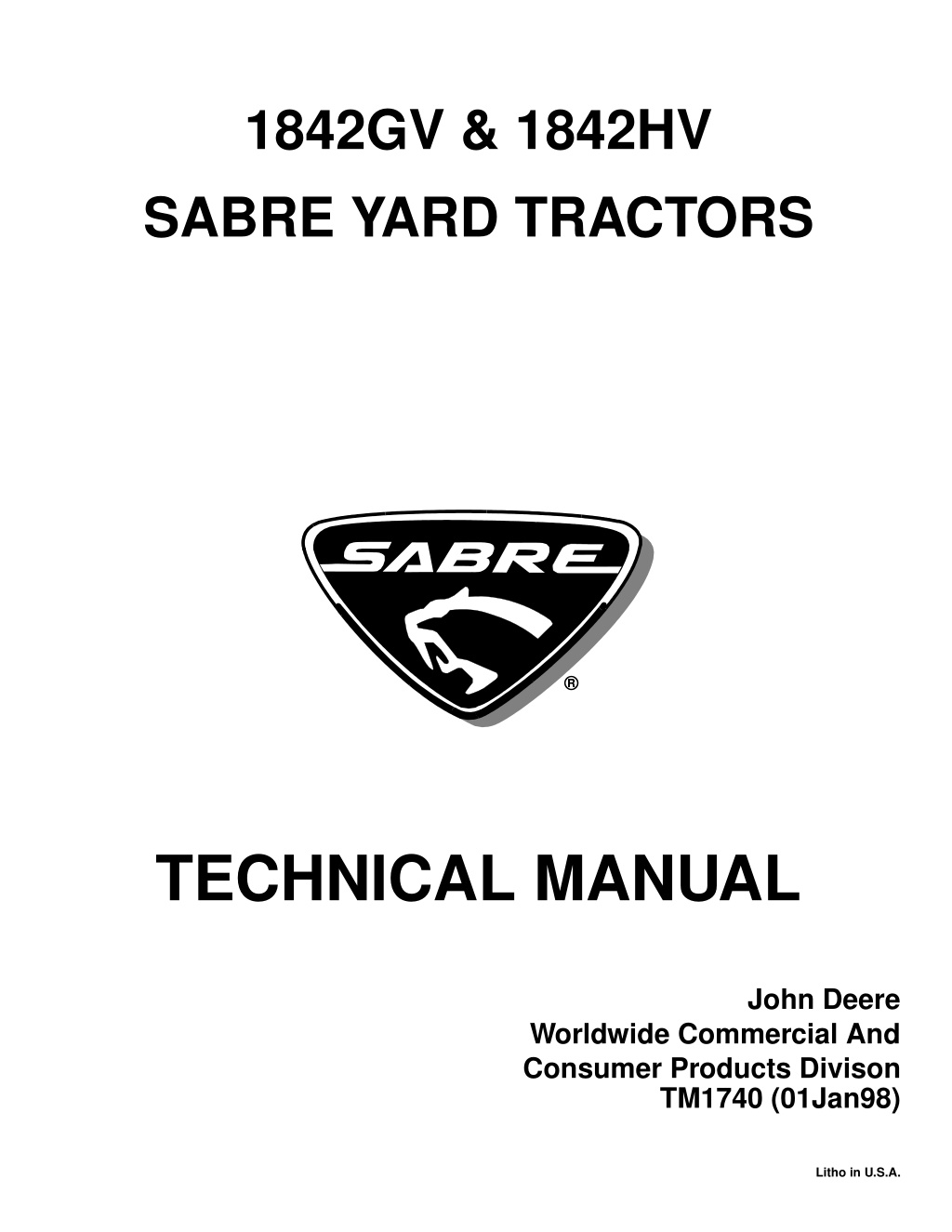
JOHN DEERE 1842HV SABRE YARD TRACTOR Service Repair Manual Instant Download
Please open the website below to get the complete manualnn//
Download Presentation

Please find below an Image/Link to download the presentation.
The content on the website is provided AS IS for your information and personal use only. It may not be sold, licensed, or shared on other websites without obtaining consent from the author. Download presentation by click this link. If you encounter any issues during the download, it is possible that the publisher has removed the file from their server.
E N D
Presentation Transcript
1842GV & 1842HV SABRE YARD TRACTORS TECHNICAL MANUAL John Deere Worldwide Commercial And Consumer Products Divison TM1740 (01Jan98) Litho in U.S.A.
M89683 Sabre 1842HV Yard Tractor
INTRODUCTION This technical manual is written for an experienced technician and contains sections that are specifically for this product. It is a part of a total product support program. Safety Specifications and Information The manual is organized so that all the information on a particular system is kept together. The order of grouping is as follows: Engine Briggs & Stratton Table of Contents General Diagnostic Information Specifications Electrical Wiring Harness Legend Component Location System Schematic Wiring Harness Troubleshooting Chart Theory of Operation Diagnostics Tests & Adjustments Repair Electrical Power Train (Gear) Note: Depending on the particular section or system being covered, not all of the above groups may be used. Power Train (Hydrostatic) Steering Each section will be identified with a symbol rather than a number. The groups and pages within a section will be consecutively numbered. Brakes We appreciate your input on this manual. To help, there are postage paid post cards included at the back. If you find any errors or want to comment on the layout of the manual please fill out one of the cards and mail it back to us. Attachments All information, illustrations and specifications in this manual are based on the latest information available at the time of publication. The right is reserved to make changes at any time without notice. Miscellaneous COPYRIGHT 1998 Deere and Co. John Deere Worldwide Commercial and Consumer Equipment Division Horicon, WI All rights reserved 1 - 1 1/5/98
https://www.ebooklibonline.com Hello dear friend! Thank you very much for reading. Enter the link into your browser. The full manual is available for immediate download. https://www.ebooklibonline.com
SAFETY RECOGNIZE SAFETY INFORMATION HANDLE FLUIDS SAFELY-AVOID FIRES BE PREPARED FOR EMERGENCIES This is the safety-alert symbol. When you see this symbol on your machine or in this manual, be alert to the potential for personal injury. Follow recommended precautions and safe servicing practices. UNDERSTAND SIGNAL WORDS A signal word DANGER, WARNING, or CAUTION is used with the safety-alert symbol. DANGER identifies the most serious hazards. Danger or Warning safety signs are located near specific hazards. CAUTION safety signs are used where general precautions should be used. CAUTION also calls attention to safety messages in this manual. When you work around fuel, do not smoke or work near heaters or other fire hazards. Store flammable fluids away from fire hazards. Do not incinerate or puncture pressurized containers. Make sure machine is clean of trash, grease, and debris. Do not store oily rags; they can ignite and burn spontaneously. Be prepared if a fire starts. Keep a first aid kit and fire extinguisher handy. Keep emergency numbers for doctors, ambulance service, hospital, and fire department near your telephone. REPLACE SAFETY SIGNS Replace missing or damaged safety signs. See the machine operator s manual for correct safety sign placement. 1 - 2 1/5/98
SAFETY USE SAFE SERVICE PROCEDURES PARK MACHINE SAFELY WEAR PROTECTIVE CLOTHING Before working on the machine: 1. Be sure all equipment is resting firmly on the ground. 1. Stop the engine. 1. Disconnect the spark plug. 1. Hang a DO NOT OPERATE tag in operator station. SUPPORT MACHINE PROPERLY AND USE PROPER LIFTING EQUIPMENT Wear close fitting clothing and safety equipment appropriate to the job. Prolonged exposure to loud noise can cause impairment or loss of hearing. Wear a suitable hearing protective device such as earmuffs or earplugs to protect against objectionable or uncomfortable loud noises. Operating equipment safely requires the full attention of the operator. Do not wear radio or music headphones while operating machine. SERVICE MACHINES SAFELY If you must work on a lifted machine or attachment, securely support the machine or attachment. Do not support the machine on cinder blocks, hollow tiles, or props that may crumble under continuous load. Do not work under a machine that is supported solely by a jack. Follow recommended procedures in this manual. Lifting heavy components incorrectly can cause severe injury or machine damage. Follow recommended procedure for removal and installation of components in the manual. Tie long hair behind your head. Do not wear a necktie, scarf, loose clothing, or necklace when you work near machine tools or moving parts. If these items were to get caught, severe injury could result. Remove rings and other jewelry to prevent electrical shorts and entanglement in moving parts. WORK IN A CLEAN AREA Before starting a job: 1. Clean work area and machine. 1. Make sure you have all necessary tools to do your job. 1. Have the right parts on hand. 1. Read all instructions thoroughly; do not attempt shortcuts. USE PROPER TOOLS Use tools appropriate to the work. Makeshift tools and procedures can create safety hazards. Use power tools only to loosen threaded parts and fasteners. For loosening and tightening hardware, use the correct size tools. DO NOT use U.S. measurement tools on metric fasteners. Avoid bodily injury caused by slipping wrenches. Use only service parts meeting John Deere specifications. USING HIGH PRESSURE WASHERS Directing pressurized water at electronic/electrical components or connectors, bearings, hydraulic seals, fuel injection pumps or other sensitive parts and components may cause product malfunctions. Reduce pressure and spray at a 45 to 90 degree angle. 1 - 3 1/5/98
SAFETY Illuminate Work Area Safely Illuminate your work area adequately but safely. Use a portable safety light for working inside or under the machine. Make sure the bulb is enclosed by a wire cage. The hot filament of an accidentally broken bulb can ignite spilled fuel or oil. Avoid Harmful Asbestos Dust Avoid breathing dust that may be generated when handling components containing asbestos fibers. Inhaled asbestos fibers may cause lung cancer. Components in products that may contain asbestos fibers are brake pads, brake band and lining assemblies, clutch plates, and some gaskets. The asbestos used in these components is usually found in a resin or sealed in some way. Normal handling is not hazardous as long as airborne dust containing asbestos is not generated. Avoid creating dust. Never use compressed air for cleaning. Avoid brushing containing asbestos. When servicing, wear an approved respirator. A special vacuum cleaner is recommended to clean asbestos. If not available, apply a mist of oil or water on the material containing asbestos. Keep bystanders away from the area. Work In Ventilated Area or grinding material Engine exhaust fumes can cause sickness or death. If it is necessary to run an engine in an enclosed area, remove the exhaust fumes from the area with an exhaust pipe extension. If you do not have an exhaust pipe extension, open the doors and get outside air into the area. SERVICE TIRES SAFELY WARNING: California Proposition 65 Gasoline engine exhaust from this product contains chemicals known to the State of California to cause cancer, birth defects, or other reproductive harm. Remove Paint Before Welding Or Heating Avoid potentially toxic fumes and dust. Hazardous fumes can be generated when paint is heated by welding, soldering, or using a torch. Do all work outside or in a well ventilated area. Dispose of paint and solvent properly. Remove paint before welding or heating: If you sand or grind paint, avoid breathing the dust. Wear an approved respirator. If you use solvent or paint stripper, remove stripper with soap and water before welding. Remove solvent or paint stripper containers and other flammable material from area. Allow fumes to disperse at least 15 minutes before welding or heating. Explosive separation of a tire and rim parts can cause serious injury or death. Do not attempt to mount a tire unless you have the proper equipment and experience to perform the job. Always maintain the correct tire pressure. Do not inflate the tires above the recommended pressure. Never weld or heat a wheel and tire assembly. The heat can cause an increase in air pressure resulting in a tire explosion. Welding can structurally weaken or deform the wheel. When inflating tires, use a clip-on chuck and extension hose long enough to allow you to stand to one side and NOT in front of or over the tire assembly. Use a safety cage if available. Check wheels for low pressure, cuts, bubbles, damaged rims or missing lug bolts and nuts. 1 - 4 1/5/98
SAFETY AVOID INJURY FROM ROTATING TINES LIVE WITH SAFETY Keep hands and feet away while machine is running. Shut off engine before starting service. Do not defeat safety systems to allow machine to operate unattended. Before returning machine to customer, make sure machine is functioning properly, especially the safety systems. Install all guards and shields. HANDLE CHEMICAL PRODUCTS SAFELY Direct exposure to hazardous chemicals can cause serious injury. Potentially hazardous chemicals used with John Deere equipment include such items as lubricants, coolants, paints, and adhesives. A Material Safety Data Sheet (MSDS) provides specific details on chemical products: physical and health hazards, safety procedures, and emergency response techniques. Check the MSDS before you start any job using a hazardous chemical. That way you will know exactly what the risks are and how to do the job safely. Then follow procedures and recommended equipment. Dispose of Waste Properly Improperly disposing of waste can threaten the environment and ecology. Potentially harmful waste used with John Deere equipment include such items as oil, fuel, coolant, brake fluid, filters, and batteries. Use leakproof containers when draining fluids. Do not use food or beverage containers that may mislead someone into drinking from them. Do not pour waste onto the ground, down a drain, or into any water source. Inquire on the proper way to recycle or dispose of waste from your local environmental or recycling center, or from your John Deere dealer. 1 - 5 1/5/98
SAFETY 1 - 6 1/5/98
CONTENTS SPECIFICATIONS & INFORMATION CONTENTS Page GENERAL VEHICLE SPECIFICATIONS . . . . . . . . . . . . . . . . . . . . . . . . . 3 METRIC FASTENER TORQUE VALUES . . . . . . . . . . . . . . . . . . . . . . . . . . . . . . . . . . 5 INCH FASTENER TORQUE VALUES. . . . . . . . . . . . . . . . . . . . . . . . . . . . . . . . . . . . . 6 GASOLINE NORTH AMERICA . . . . . . . . . . . . . . . . . . . . . . . . . . . . . . . . . . . . . . . . 7 GASOLINE STORAGE NORTH AMERICA . . . . . . . . . . . . . . . . . . . . . . . . . . . . . . . 7 GASOLINE EUROPE . . . . . . . . . . . . . . . . . . . . . . . . . . . . . . . . . . . . . . . . . . . . . . . . 8 GASOLINE STORAGE EUROPE . . . . . . . . . . . . . . . . . . . . . . . . . . . . . . . . . . . . . . . 8 ENGINE OIL NORTH AMERICA . . . . . . . . . . . . . . . . . . . . . . . . . . . . . . . . . . . . . . . 9 ENGINE OIL EUROPE . . . . . . . . . . . . . . . . . . . . . . . . . . . . . . . . . . . . . . . . . . . . . . . 9 ENGINE BREAK IN OIL NORTH AMERICA. . . . . . . . . . . . . . . . . . . . . . . . . . . . . 10 ENGINE BREAK IN OIL EUROPE . . . . . . . . . . . . . . . . . . . . . . . . . . . . . . . . . . . . 11 ANTI-CORROSION GREASE. . . . . . . . . . . . . . . . . . . . . . . . . . . . . . . . . . . . . . . . . . 12 ALTERNATIVE LUBRICANTS. . . . . . . . . . . . . . . . . . . . . . . . . . . . . . . . . . . . . . . . . . 12 SYNTHETIC LUBRICANTS. . . . . . . . . . . . . . . . . . . . . . . . . . . . . . . . . . . . . . . . . . . . 12 LUBRICANT STORAGE . . . . . . . . . . . . . . . . . . . . . . . . . . . . . . . . . . . . . . . . . . . . . . 12 MIXING OF LUBRICANTS . . . . . . . . . . . . . . . . . . . . . . . . . . . . . . . . . . . . . . . . . . . . 12 CHASSIS GREASE NORTH AMERICA . . . . . . . . . . . . . . . . . . . . . . . . . . . . . . . . . 13 CHASSIS GREASE EUROPE . . . . . . . . . . . . . . . . . . . . . . . . . . . . . . . . . . . . . . . . 13 HYDROSTATIC TRANSMISSION OIL NORTH AMERICA. . . . . . . . . . . . . . . . . . . 14 HYDROSTATIC TRANSMISSION OIL EUROPE . . . . . . . . . . . . . . . . . . . . . . . . . . 14 GEAR TRANSMISSION GREASE NORTH AMERICA . . . . . . . . . . . . . . . . . . . . . 15 GEAR TRANSMISSION GREASE EUROPE . . . . . . . . . . . . . . . . . . . . . . . . . . . . . 15 PRODUCT IDENTIFICATION LOCATIONS . . . . . . . . . . . . . . . . . . . . . . 16 PRODUCT IDENTIFICATION NUMBER (PIN) . . . . . . . . . . . . . . . . . . . . . . . . . . . . . 16 ENGINE IDENTIFICATION NUMBER BRIGGS & STRATTON . . . . . . . . . . . . . . . 16 HYDROSTATIC TRANSAXLE IDENTIFICATION NUMBER . . . . . . . . . . . . . . . . . . . 16 GEAR TRANSAXLE IDENTIFICATION NUMBER . . . . . . . . . . . . . . . . . . . . . . . . . . 16 2 - 1 1/5/98
NOTES 2 - 2 1/5/98
GENERAL VEHICLE SPECIFICATIONS SPECIFICATIONS & INFORMATION GENERAL VEHICLE SPECIFICATIONS ENGINE Make . . . . . . . . . . . . . . . . . . . . . . . . . . . . . . . . . . . . . . . . . . . . . . . . . . .Briggs & Stratton Model Name . . . . . . . . . . . . . . . . . . . . . . . . . . . . . . . . . . . . . . . . . . . . . Vanguard V-Twin Model Number. . . . . . . . . . . . . . . . . . . . . . . . . . . . . . . . . . . . . . . . . . . . . . . . . . . 350777 Horsepower. . . . . . . . . . . . . . . . . . . . . . . . . . . . . . . . . . . . . . . . . . . . . .13.42 kW (18 hp) Displacement . . . . . . . . . . . . . . . . . . . . . . . . . . . . . . . . . . . . . . . . 570 mL (34.7 cu. in.) Oil Capacity w/o Oil Filter . . . . . . . . . . . . . . . . . . . . . . . . . . . . . . . . . . . . . . . . . . . . .1.42 L (1.5 qt.) w/ Oil Filter . . . . . . . . . . . . . . . . . . . . . . . . . . . . . . . . . . . . . . . . . . . . . 1.65 L (1.7 qt.) Cylinders . . . . . . . . . . . . . . . . . . . . . . . . . . . . . . . . . . . . . . . . . . . . . . . . . . . . . . . . . . . . 2 Stroke/Cycle . . . . . . . . . . . . . . . . . . . . . . . . . . . . . . . . . . . . . . . . . . . . . . . . . . . . . . . . . 4 Valves . . . . . . . . . . . . . . . . . . . . . . . . . . . . . . . . . . . . . . . . . . . . . . . . . . Overhead Valves Lubrication. . . . . . . . . . . . . . . . . . . . . . . . . . . . . . . . . . . . . . . . . . . . . . .Fully Pressurized Oil Filter. . . . . . . . . . . . . . . . . . . . . . . . . . . . . . Single Element, Full Flow, Spin-On Filter Cooling System. . . . . . . . . . . . . . . . . . . . . . . . . . . . . . . . . . . . . . . . . . . . . . . . Air Cooled Air Cleaner . . . . . Dual Stage (Paper Element w/Replaceable Outer Foam Pre-cleaner) Muffler . . . . . . . . . . . . . . . . . . . . . . . . . . . . . . . . . . . .Horizontal Discharge Below Frame FUEL SYSTEM Aspiration . . . . . . . . . . . . . . . . . . . . . . . . . . . . . . . . . . . . . . . . . . . . . . . . . . . . . . .Natural Fuel Tank Location . . . . . . . . . . . . . . . . . . . . . . . . . . . . . . . . . . . . . . . . . . . . . . . . . .Rear Fuel Tank Capacity . . . . . . . . . . . . . . . . . . . . . . . . . . . . . . . . . . . . . . . . 11 L (3 U.S. gal) Fuel (Minimum Octane). . . . . . . . . . . . . . . . . . . . . . . . . . Unleaded Gasoline, 87 Octane Fuel Delivery. . . . . . . . . . . . . . . . . . . . . . . . . . . . . . . . .Float-Type Side Draft Carburetor Fuel Filter . . . . . . . . . . . . . . . . . . . . . . . . . . . . . . . . . . . . . . . . . . . . Replaceable In-Line ELECTRICAL Ignition. . . . . . . . . . . . . . . . . . . . . . . . . . . .Electronic Capacitor Discharge Ignition (CDI) Type of Starter. . . . . . . . . . . . . . . . . . . . . . . . . . . . . . . . . . . . . . . . . . . . . . Solenoid Shift Charging System. . . . . . . . . . . . . . . . . . . . . . . . . . . . . . . . . . . . . . . . Flywheel Alternator Charging Capacity. . . . . . . . . . . . . . . . . . . . . . . . . . . . . . . . . . . . . . . 10 amp, Regulated Battery Type . . . . . . . . . . . . . . . . . . . . . . . . . . . . . . . . . . . . . . . . . . . . . . .BCI Group, U1 Battery Voltage . . . . . . . . . . . . . . . . . . . . . . . . . . . . . . . . . . . . . . . . . . . . . . . . . . 12 VDC Battery Reserve Capacity at 25 Amp . . . . . . . . . . . . . . . . . . . . . . . . . . . . . . .38 minutes Battery Cold Cranking Amps at 18 C (0 F) . . . . . . . . . . . . . . . . . . . . . . . . .295 amps STEERING Type. . . . . . . . . . . . . . . . . . . . . . . . . . . . . . . . . . . . . . . . . . . . . . . . . . . Sector and Pinion BRAKES Location. . . . . . . . . . . . . . . . . . . . . . . . . . . . . . . . . . . . . . . . . . . . . . . . . . . . . . .Transaxle Type. . . . . . . . . . . . . . . . . . . . . . . . . . . . . . . . . . . . . . . . . . . External Band, Single Pedal Park Brake. . . . . . . . . . . . . . . . . . . . . . . . . . . . . . . . . . . . . . Right Pedal, Clutch Interlock 2 - 3 2/13/98
GENERAL VEHICLE SPECIFICATIONS SPECIFICATIONS & INFORMATION IMPLEMENT LIFT Lift System . . . . . . . . . . . . . . . . . . . . . . . . . . . . . . . . . . . . Manual with Lift-Assist Spring Lift Lever Location. . . . . . . . . . . . . . . . . . . . . . . . . . . . . . . . . . . . .Left-hand side of hood TRANSAXLE (GEAR-MODEL NUMBER 1842GV) Model . . . . . . . . . . . . . . . . . . . . . . . . . . . . . . . . . . . . . . . . . . . . . . . . . . . . . Peerless 820 Speeds Forward . . . . . . . . . . . . . . . . . . . . . . . . . . . . . . . . . . . . . . . . . . . . . . . . . . . . . . 6 Speeds Reverse . . . . . . . . . . . . . . . . . . . . . . . . . . . . . . . . . . . . . . . . . . . . . . . . . . . . . . 1 Gear Speed Range Forward 1st . . . . . . . . . . . . . . . . . . . . . . . . . . . . . . . . . . . . . . . . . . 2.1 km/h (1.3 mph) 2nd . . . . . . . . . . . . . . . . . . . . . . . . . . . . . . . . . . . . . . . . . . . . . . . . 3.0 km/h (1.9 mph) 3rd. . . . . . . . . . . . . . . . . . . . . . . . . . . . . . . . . . . . . . . . . . . . . . . . . 4.3 km/h (2.7 mph) 4th . . . . . . . . . . . . . . . . . . . . . . . . . . . . . . . . . . . . . . . . . . . . . . . . . 5.3 km/h (3.3 mph) 5th . . . . . . . . . . . . . . . . . . . . . . . . . . . . . . . . . . . . . . . . . . . . . . . . . 7.0 km/h (4.4 mph) 6th . . . . . . . . . . . . . . . . . . . . . . . . . . . . . . . . . . . . . . . . . . . . . . . . . 9.8 km/h (6.1 mph) Reverse. . . . . . . . . . . . . . . . . . . . . . . . . . . . . . . . . . . . . . . . . . . . . 4.6 km/h (2.9 mph) TRANSAXLE (HYDROSTATIC-MODEL NUMBER 1842HV) Drive Train. . . . . . . . . . . . Belt Drive Transaxle with foot-controlled variable speed drive Transaxle. . . . . . . . . . . . . . . . . . . . . . . . . . . . . . . . . . . . . . . . . . . . . . . . Torq Model K-61 Travel Speed-Forward. . . . . . . . . . . . . . . . . . . . . . . . . . . . . . . . . 0-8.5 km/h (0-5.3 mph) Travel Speed-Reverse. . . . . . . . . . . . . . . . . . . . . . . . . . . . . . . . . 0-3.5 km/h (0-2.5 mph) PTO DRIVE Type. . . . . . . . . . . . . . . . . . . . . . . . . . . . . . . . . . . . . . . . . . . . . . . . . . . . . . . . . . . . .V-Belt Clutch Type . . . . . . . . . . . . . . . . . . . . . . . . . . . . . . . . . . . . . . . Engine-Mounted, Electric Control. . . . . . . . . . . . . . . . . . . . . . . . . . . . . . . . . . . . . . . . . . . . . . . . . . . Switch on dash DIMENSIONS Overall Height . . . . . . . . . . . . . . . . . . . . . . . . . . . . . . . . . . . . . . . . . . . 112 cm (44.1 in.) Overall Length. . . . . . . . . . . . . . . . . . . . . . . . . . . . . . . . . . . . . . . . . . 181.6 cm (71.5 in.) Vehicle Weight (Gear Model Number 1842GV) . . . . . . . . . . . . . . . . . . . 240 kg (528 lb) Vehicle Weight (Hydrostatic Model Number 1842HV) . . . . . . . . . . . . . . 241 kg (530 lb) TIRES Size-Front . . . . . . . . . . . . . . . . . . . . . . . . . . . . . . . . . . . . . . . . . . . . . . . . . . . . . 16 X 6.5 Size-Rear . . . . . . . . . . . . . . . . . . . . . . . . . . . . . . . . . . . . . . . . . . . . . . . . . . . . . 23 X 9.5 MOWER DECK (42-INCH) Blades-Rotary . . . . . . . . . . . . . . . . . . . . . . . . . . . . . . . . . . . . . . . . . . . . . . . . . . . . . . . . 2 Cutting Height-Approx. . . . . . . . . . . . . . . . . . . . . . . . . . . . . . . . 25 102 mm (1 4 in.) Blade Length . . . . . . . . . . . . . . . . . . . . . . . . . . . . . . . . . . . . . . . . . 545.2 mm (21.46 in.) Cutting Width . . . . . . . . . . . . . . . . . . . . . . . . . . . . . . . . . . . . . . . . . . . . 1067 mm (42 in.) 2 - 4 2/13/98
GENERAL VEHICLE SPECIFICATIONS SPECIFICATIONS & INFORMATION METRIC FASTENER TORQUE VALUES 12.9 4.8 8.8 9.8 10.9 Property Class and Head Markings 12.9 10.9 9.8 8.8 4.8 8.8 9.8 12.9 4.8 10.9 12.9 12 10 10 5 Property Class and Nut Markings 10 10 12 5 10 5 10 12 TS1163 Class 4.8 Class 8.8 or 9.8 Class 10.9 Class 12.9 Lubricateda Drya Lubricateda Drya Lubricateda Drya Lubricateda Drya SIZE N m lb-ft N m lb-ft N m lb-ft N m lb-ft N m lb-ft N m lb-ft N m lb-ft N m lb-ft M6 4.8 3.5 6 4.5 9 6.5 11 8.5 13 9.5 17 12 15 11.5 19 14.5 M8 12 8.5 15 11 22 16 28 20 32 24 40 30 37 28 47 35 M10 23 17 29 21 43 32 55 40 63 47 80 60 75 55 95 70 M12 40 29 50 37 75 55 95 70 110 80 140 105 130 95 165 120 M14 63 47 80 60 120 88 150 110 175 130 225 165 205 150 260 109 M16 100 73 125 92 190 140 240 175 275 200 350 225 320 240 400 300 M18 135 100 175 125 260 195 330 250 375 275 475 350 440 325 560 410 M20 190 140 240 180 375 275 475 350 530 400 675 500 625 460 800 580 M22 260 190 330 250 510 375 650 475 725 540 925 675 850 625 1075 800 M24 330 250 425 310 650 475 825 600 925 675 1150 850 1075 800 1350 1000 M27 490 360 625 450 950 700 1200 875 1350 1000 1700 1250 1600 1150 2000 1500 M30 675 490 850 625 1300 950 1650 1200 1850 1350 2300 1700 2150 1600 2700 2000 M33 900 675 1150 850 1750 1300 2200 1650 2500 1850 3150 2350 2900 2150 3700 2750 M36 1150 850 1450 1075 2250 1650 2850 2100 3200 2350 4050 3000 3750 2750 4750 3500 DO NOT use these hand torque values if a different torque value or tightening procedure is given for a specific application. Torque values listed are for general use only and include a 10% variance factor. Check tightness of fasteners periodically. DO NOT use air powered wrenches. Shear bolts are designed to fail under predetermined loads. Always replace shear bolts with identical grade. Fasteners should be replaced with the same class. Make sure fastener threads are clean and that you properly start thread engagement. This will prevent them from failing when tightening. When bolt and nut combination fasteners are used, torque values should be applied to the NUT instead of the bolt head. Tighten toothed or serrated-type lock nuts to the full torque value. a Lubricated means coated with a lubricant such as engine oil, or fasteners with phosphate and oil coatings. Dry means plain or zinc plated (yellow dichromate - Specification JDS117) without any lubrication. Reference: JDS G200. 2 - 5 2/13/98
GENERAL VEHICLE SPECIFICATIONS SPECIFICATIONS & INFORMATION INCH FASTENER TORQUE VALUES 8 5.2 5.1 5 8.2 1 or 2b SAE Grade and Head Markings No Marks 5 2 8 SAE Grade and Nut Markings No Marks TS1162 Grade 2b Grade 1 Grade 5, 5.1 or 5.2 Grade 8 or 8.2 Lubricateda Drya Lubricateda Drya Lubricateda Drya Lubricateda Drya SIZE N m lb-ft N m lb-ft N m lb-ft N m lb-ft N m lb-ft N m lb-ft N m lb-ft N m lb-ft 1/4 3.7 2.8 4.7 3.5 6 4.5 7.5 5.5 9.5 7 12 9 13.5 10 17 12.5 5/16 7.7 5.5 10 7 12 9 15 11 20 15 25 18 28 21 35 26 3/8 14 10 17 13 22 16 27 20 35 26 44 33 50 36 63 46 7/16 22 16 28 20 35 26 44 32 55 41 70 52 80 58 100 75 1/2 33 25 42 31 53 39 67 50 85 63 110 80 120 90 150 115 9/16 48 36 60 45 75 56 95 70 125 90 155 115 175 130 225 160 5/8 67 50 85 62 105 78 135 100 170 125 215 160 215 160 300 225 3/4 120 87 150 110 190 140 240 175 300 225 375 280 425 310 550 400 7/8 190 140 240 175 190 140 240 175 490 360 625 450 700 500 875 650 1 290 210 360 270 290 210 360 270 725 540 925 675 1050 750 1300 975 1-1/8 470 300 510 375 470 300 510 375 900 675 1150 850 1450 1075 1850 1350 1-1/4 570 425 725 530 570 425 725 530 1300 950 1650 1200 2050 1500 2600 1950 1-3/8 750 550 950 700 750 550 950 700 1700 1250 2150 1550 2700 2000 3400 2550 1-1/2 1000 725 1250 925 990 725 1250 930 2250 1650 2850 2100 3600 2650 4550 3350 DO NOT use these hand torque values if a different torque value or tightening procedure is given for a specific application. Torque values listed are for general use only and include a 10% variance factor. Check tightness of fasteners periodically. DO NOT use air powered wrenches. Shear bolts are designed to fail under predetermined loads. Always replace shear bolts with identical grade. Fasteners should be replaced with the same grade. Make sure fastener threads are clean and that you properly start thread engagement. This will prevent them from failing when tightening. When bolt and nut combination fasteners are used, torque values should be applied to the NUT instead of the bolt head. Tighten toothed or serrated-type lock nuts to the full torque value. a Lubricated means coated with a lubricant such as engine oil, or fasteners with phosphate and oil coatings. Dry means plain or zinc plated (yellow dichromate - Specification JDS117) without any lubrication. b Grade 2 applies for hex cap screws (not hex bolts) up to 152 mm (6-in.) long. Grade 1 applies for hex cap screws over 152 mm (6-in.) long, and for all other types of bolts and screws of any length. Reference: JDS G200. 2 - 6 2/13/98
GENERAL VEHICLE SPECIFICATIONS SPECIFICATIONS & INFORMATION GASOLINE NORTH AMERICA c CAUTION Gasoline is HIGHLY FLAMMABLE, handle it with care. DO NOT refuel machine while: indoors, always fill gas tank outdoors; machine is near an open flame or sparks; engine is running, STOP engine; engine is hot, allow it to cool sufficiently first; smoking. STOP ENGINE NO SMOKING NO HOT ENGINE Help prevent fires: fill gas tank to bottom of filler neck only; be sure fill cap is tight after fueling; clean up any gas spills IMMEDIATELY; keep machine clean and in good repair free of excess grease, oil, debris, and faulty or damaged parts; any storage of machines with gas left in tank should be in an area that is well ventilated to prevent possible igniting of fumes by an open flame or spark, this includes any appliance with a pilot light. NO STATIC ELECTRIC DISCHARGE NO OPEN FLAME OR SPARK To prevent fire or explosion caused by STATIC ELECTRIC DISCHARGEduring fueling: ONLY use a clean, approved POLYETHYLENE PLASTIC fuel container and funnel WITHOUT any metal screen or filter. To avoid engine damage: DO NOT mix oil with gasoline; ONLY use clean, fresh unleaded gasoline with an octane rating (anti-knock index) of 87 or higher; fill gas tank at the end of each day's operation to help prevent condensation from forming inside a partially filled tank; keep up with specified service intervals. c WARNING California Proposition 65 Warning: Gasoline engine exhaust from this product contains chemicals known to the State of California to cause cancer, birth reproductive harm. defects, or other GASOLINE STORAGE NORTH AMERICA Use of alternative oxygenated, gasohol blended, unleaded gasoline is acceptable as long as: the ethyl or grain alcohol blends DO NOT exceed 10% by volume or methyl tertiary butyl ether (MTBE) blends DO NOT exceed 15% by volume. IMPORTANT: Keep all dirt, scale, water or other foreign material out of gasoline. Keep gasoline stored in a safe, protected area. Storage of gasoline in a clean, properly marked ( UNLEADED GASOLINE )POLYETHYLENE PLASTICcontainer WITHOUT any metal screen or filter is recommended. DO NOT use de-icers to attempt to remove water from gasoline or depend on fuel filters to remove water from gasoline. Use a water separator installed in the storage tank outlet. BE SURE to properly discard unstable or contaminated gasoline. When storing unit or gasoline, it is recommended that you add John Deere Gasoline Conditioner and Stabilizer (TY15977) or an equivalent to the gasoline. BE SURE to follow directions on container and to properly discard empty container. IMPORTANT: DO NOT use METHANOL gasoline because METHANOL environment and to your health. is harmful to the 2 - 7 2/13/98
GENERAL VEHICLE SPECIFICATIONS SPECIFICATIONS & INFORMATION GASOLINE EUROPE c CAUTION Gasoline is HIGHLY FLAMMABLE, handle it with care. DO NOT refuel machine while: indoors, always fill gas tank outdoors; machine is near an open flame or sparks; engine is running, STOP engine; engine is hot, allow it to cool sufficiently first; smoking. STOP ENGINE NO SMOKING NO HOT ENGINE Help prevent fires: fill gas tank to bottom of filler neck only; be sure fill cap is tight after fueling; clean up any gas spills IMMEDIATELY; keep machine clean and in good repair free of excess grease, oil, debris, and faulty or damaged parts; any storage of machines with gas left in tank should be in an area that is well ventilated to prevent possible igniting of fumes by an open flame or spark, this includes any appliance with a pilot light. NO STATIC ELECTRIC DISCHARGE NO OPEN FLAME OR SPARK To prevent fire or explosion caused by STATIC ELECTRIC DISCHARGEduring fueling: ONLY use a clean, approved POLYETHYLENE PLASTIC fuel container and funnel WITHOUT any metal screen or filter. GASOLINE STORAGE EUROPE To avoid engine damage: DO NOT mix oil with gasoline; ONLY use clean, fresh unleaded gasoline with an octane rating (anti-knock index) of 87 or higher; fill gas tank at the end of each day's operation to help prevent condensation from forming inside a partially filled tank; keep up with specified service intervals. IMPORTANT: Keep all dirt, scale, water or other foreign material out of gasoline. Keep gasoline stored in a safe, protected area. Storage of gasoline in a clean, properly marked ( UNLEADED GASOLINE )POLYETHYLENE PLASTICcontainer WITHOUT any metal screen or filter is recommended. DO NOT use de-icers to attempt to remove water from gasoline or depend on fuel filters to remove water from gasoline. Use a water separator installed in the storage tank outlet. BE SURE to properly discard unstable or contaminated gasoline. When storing unit or gasoline, it is recommended that you add John Deere Gasoline Conditioner and Stabilizer (TY15977) or an equivalent to the gasoline. BE SURE to follow directions on container and to properly discard empty container. Use of alternative oxygenated, gasohol blended, unleaded gasoline is acceptable as long as: the ethyl or grain alcohol blends DO NOT exceed 10% by volume or methyl tertiary butyl ether (MTBE) blends DO NOT exceed 15% by volume. IMPORTANT: DO NOT use METHANOL gasoline because METHANOL environment and to your health. is harmful to the 2 - 8 2/13/98
GENERAL VEHICLE SPECIFICATIONS SPECIFICATIONS & INFORMATION ENGINE OIL NORTH AMERICA Use the appropriate oil viscosity based on the expected air temperature range during the period between recommended oil changes. Operating outside of these recommended oil air temperature ranges may cause premature engine failure. ENGINE OIL EUROPE Use the appropriate oil viscosity based on their expected air temperature range during the period between recommended oil changes. Operating outside of these recommended oil air temperature ranges may cause premature engine failure. The following John Deere oil is PREFERRED: TORQ-GARD SUPREME SAE 5W-30. The following John Deere oils are PREFERRED: TORQ-GARD SUPREME SAE 5W-30; UNI GARD SAE 5W-30. The following John Deere oils are also recommended, based on their specified temperature range: TURF GARD SAE 10W-30; PLUS 4 SAE 10W-30; TORQ GARD SUPREME SAE 30. The following John Deere oils are also recommended, based on their specified temperature range: TORQ GARD SUPREME SAE 10W-30; UNI GARD SAE 10W-30; TORQ GARD SUPREME SAE 30 UNI GARD SAE 30. Other oils may be used if above John Deere oils are not available, provided they meet one of the following specifications: SAE 5W-30 API Service Classification SG or higher; SAE 10W-30 API Service Classification SG or higher; SAE 30 API Service Classification SC or higher. Other oils may be used if above John Deere oils are not available, provided they meet one of the following specifications: CCMC Specification G4 or higher. SAE 30 SAE 10W-30 SAE 30 SAE 5W-30 SAE 10W-30 SAE 5W-30 PREFERRED PREFERRED M58275 AIR TEMPERATURE M58275 John Deere Dealers: You may want to cross-reference the following publications to recommend the proper oil for your customers: Module DX,ENOIL2 in JDS G135; Section 530, Lubricants & Hydraulics, of the John Deere Merchandise Sales Guide. AIR TEMPERATURE John Deere Dealers: You may want to cross-reference the following publications to recommend the proper oil for your customers: Module DX,ENOIL2 in JDS G135; Section 530, Lubricants & Hydraulics, of the John Deere Merchandise Sales Guide; Lubrication Sales Manual PI7032. 2 - 9 2/13/98
GENERAL VEHICLE SPECIFICATIONS SPECIFICATIONS & INFORMATION ENGINE BREAK IN OIL NORTH AMERICA IMPORTANT: ONLY use a quality break-in oil in rebuilt or remanufactured engines for the first 5 hours (maximum) of operation. DO NOT use oils with heavier viscosity weights than SAE 5W-30 or oils meeting specifications API SG or SH, these oils will not remanufactured engines to break-in properly. allow rebuilt or BREAK-IN OIL SAE 5W-30 The following John Deere oil is PREFERRED: BREAK IN ENGINE OIL. John Deere BREAK IN ENGINE OIL is formulated with special additives for aluminum and cast iron type engines to allow the power cylinder components (pistons, rings, and liners as well) to wear-in while protecting other engine components, valve train and gears, from abnormal wear. Engine rebuild instructions should be followed closely to determine if special requirements are necessary. PREFERRED AIR TEMPERATURE John Deere BREAK IN ENGINE OIL is also recommended for non-John Deere engines, both aluminum and cast iron types. M58275 The following John Deere oil is also recommended as a break-in engine oil: TORQ GARD SUPREME SAE 5W-30. John Deere Dealers: You may want to cross-reference the following publications to recommend the proper oil for your customers: Module DX,ENOIL4 in JDS G135; Section 530, Lubricants & Hydraulics, of the John Deere Merchandise Sales Guide; Lubrication Sales Manual PI7032. If the above recommended John Deere oils are not available, use a break-in engine oil meeting the following specification during the first 5 hours (maximum) of operation: SAE 5W-30 API Service Classification SE or higher. IMPORTANT: After the break-in period, use the John Deere oil that is recommended for this engine. 2 - 10 2/13/98
GENERAL VEHICLE SPECIFICATIONS SPECIFICATIONS & INFORMATION ENGINE BREAK IN OIL EUROPE IMPORTANT: ONLY use a quality break-in oil in rebuilt or remanufactured engines for the first 5 hours (maximum) of operation. DO NOT use oils with heavier viscosity weights than SAE 5W-30 or oils meeting CCMC Specification G5 these oils will not allow rebuilt or remanufactured engines to break-in properly. BREAK-IN OIL SAE 5W-30 The following John Deere oil is PREFERRED: BREAK IN ENGINE OIL. John Deere BREAK IN ENGINE OIL is formulated with special additives for aluminum and cast iron type engines to allow the power cylinder components (pistons, rings, and liners as well) to wear-in while protecting other engine components, valve train and gears, from abnormal wear. Engine rebuild instructions should be followed closely to determine if special requirements are necessary. PREFERRED John Deere BREAK IN ENGINE OIL is also recommended for non-John Deere engines, both aluminum and cast iron types. AIR TEMPERATURE M58275 The following John Deere oil is also recommended as a break-in engine oil: TORQ GARD SUPREME SAE 5W-30. John Deere Dealers: You may want to cross-reference the following publications to recommend the proper oil for your customers: Module DX,ENOIL4 in JDS G135; Section 530, Lubricants & Hydraulics, of the John Deere Merchandise Sales Guide. If the above recommended John Deere oils are not available, use a break-in engine oil meeting the following specification during the first 5 hours (maximum) of operation: SAE 5W-30 CCMC Specification G4 or higher. IMPORTANT: After the break-in period, use the John Deere oil that is specified for this engine. 2 - 11 2/13/98
GENERAL VEHICLE SPECIFICATIONS SPECIFICATIONS & INFORMATION ANTI-CORROSION GREASE This anti-corrosion grease is formulated to provide the best protection against absorbing moisture, which is one of the major causes of corrosion. This grease is also superior in its resistance to separation and migration. The following anti-corrosion grease is PREFERRED: DuBois MPG-2 Multi-Purpose Polymer Grease M79292. Other greases may be used if they meet or exceed the following specifications: John Deere Standard JDM J13A2, NLGI Grade 1. ALTERNATIVE LUBRICANTS Conditions in certain geographical areas outside the United States and Canada may require different lubricant recommendations than the ones printed in this technical manual or the operator's manual. Consult with your John Deere Dealer, or Sales Branch, to obtain the alternative lubricant recommendations. IMPORTANT: Use of alternative lubricants could cause reduced life of the component. If alternative lubricants are to be used, it is recommended that the factory fill be thoroughly removed before switching to any alternative lubricant. SYNTHETIC LUBRICANTS Synthetic lubricants may be used in John Deere equipment if they meet the applicable performance requirements (industry classification and/or military specification) as shown in this manual. The recommended air temperature limits and service or lubricant change intervals should be maintained as shown in the operator s manual. Avoid mixing different brands, grades, or types of oil. Oil manufacturers blend additives in their oils to meet certain specifications and performance requirements. Mixing different oils can interfere with the proper functioning of these additives and degrade lubricant performance. NLGI Grade 1 JDM J13A2 LUBRICANT STORAGE All machines operate at top efficiency only when clean lubricants are used. Use clean storage containers to handle all lubricants. Store them in an area protected from dust, moisture, and other contamination. Store drums on their sides. Make sure all containers are properly marked as to their contents. Dispose of all old, used containers and their contents properly. AIR TEMPERATURE M58275 John Deere Dealers: You may want to cross-reference the following publications to recommend the proper grease for your customers: Module DX,GREA1 in JDS G135; Section 530, Lubricants & Hydraulics, of the John Deere Merchandise Sales Guide; Lubrication Sales Manual PI7032. MIXING OF LUBRICANTS In general, avoid mixing different brands or types of lubricants. Manufacturers blend additives in their lubricants to meet certain performance requirements. Mixing different lubricants can interfere with the proper functioning of these additives and lubricant properties which will downgrade their intended specified performance. specifications and 2 - 12 2/13/98
GENERAL VEHICLE SPECIFICATIONS SPECIFICATIONS & INFORMATION CHASSIS GREASE NORTH AMERICA Use the following grease based on the air temperature range. Operating outside of the recommended grease air temperature range may cause premature failures. CHASSIS GREASE EUROPE Use the following grease based on the air temperature range. Operating outside of the recommended grease air temperature range may cause premature failures. IMPORTANT: ONLY use a quality grease in this application. DO NOT mix any other greases in this application. DO NOT use any BIO GREASE in this application. IMPORTANT: ONLY use a quality grease in this application. DO NOT mix any other greases in this application. DO NOT use any BIO GREASE in this application. The following John Deere grease is PREFERRED: GREASE GARD JDM J13E4, NLGI Grade 2. Other greases may be used if above preferred John Deere grease is not available, provided they meet the following specification: John Deere Standard JDM J13E4, NLGI Grade 2. The following John Deere grease is PREFERRED: NON-CLAY HIGH-TEMPERATURE EP GREASE JDM J13E4, NLGI Grade 2. Other greases may be used if above preferred John Deere grease is not available, provided they meet the following specification: John Deere Standard JDM J13E4, NLGI Grade 2. NLGI Grade 2 JDM J13E4 NLGI Grade 2 JDM J13E4 M58275 AIR TEMPERATURE John Deere Dealers: You may want to cross-reference the following publications to recommend the proper grease for your customers: Module DX,GREA1 in JDS G135; Section 530, Lubricants & Hydraulics, of the John Deere Merchandise Sales Guide. M58275 AIR TEMPERATURE John Deere Dealers: You may want to cross-reference the following publications to recommend the proper grease for your customers: Module DX,GREA1 in JDS G135; Section 530, Lubricants & Hydraulics, of the John Deere Merchandise Sales Guide; Lubrication Sales Manual P17032. 2 - 13 2/13/98
GENERAL VEHICLE SPECIFICATIONS SPECIFICATIONS & INFORMATION HYDROSTATIC TRANSMISSION OIL NORTH AMERICA Use the appropriate oil viscosity based on these air temperature ranges. Operating outside of these recommended oil air temperature ranges may cause premature hydrostatic transmission failure. HYDROSTATIC TRANSMISSION OIL EUROPE Use the appropriate oil viscosity based on these air temperature ranges. Operating outside of these recommended oil air temperature ranges may cause premature hydrostatic transmission failure. IMPORTANT: ONLY use a quality SAE 5W-30 SYNTHETIC engine oil in this transmission. Mixing of two viscosity grade oils is NOT RECOMMENED. DO NOT use BIO HY GARD in this transmission. IMPORTANT: ONLY use a quality SAE 5W-30 SYNTHETIC engine oil in this transmission. Mixing of two viscosity grade oils is NOT RECOMMENED. DO NOT use BIO HY GARD in this transmission. The following oil is RECOMMENDED: 5W-50 SYNTHETIC OIL The following oil is RECOMMENDED: 5W-50 SYNTHETIC OIL Use only oils that meet the following specifications: API Service Classifications SG or higher. Use only oils that meet the following specifications: CCMC Specifications G4 or higher. SAE 10W-30 SAE 10W-30 SAE 5W-30 SAE 5W-30 AIR TEMPERATURE M58275 M58275 AIR TEMPERATURE John Deere Dealers: You may want to cross-reference the following publications to recommend the proper oil for your customers: Module DX,ENOIL2 in JDS G135; Section 530, Lubricants & Hydraulics, of the John Deere Merchandise Sales Guide; Lubrication Sales Manual PI7032. John Deere Dealers: You may want to cross-reference the following publications to recommend the proper oil for your customers: Module DX,ENOIL2 in JDS G135; Section 530, Lubricants & Hydraulics, of the John Deere Merchandise Sales Guide. 2 - 14 2/13/98
GENERAL VEHICLE SPECIFICATIONS SPECIFICATIONS & INFORMATION GEAR TRANSMISSION GREASE- NORTH AMERICA Use the following grease viscosity based on the air temperature range. Operating recommended oil air temperature range may cause premature gear case failure. GEAR TRANSMISSION GREASE - EUROPE Use the following oil viscosity based on the air temperature range. Operating recommended oil air temperature range may cause premature gear case failure. outside of the outside of the IMPORTANT: ONLY use a quality grease in this gear case. DO NOT mix any other oils in this gear case. DO NOT use BIO HY GARD in this gear case. IMPORTANT: ONLY use a quality oil in this gear case. DO NOT mix any other oils in this gear case. DO NOT use BIO HY GARD in this gear case. The following John Deere gear case oil is PREFERRED: AN102562 CORN HEAD GREASE. The following John Deere gear case oil is PREFERRED: AN102562 CORN HEAD GREASE. SAE 80W-90 SAE 80W-90 M58275 AIR TEMPERATURE M58275 AIR TEMPERATURE John Deere Dealers: You may want to cross-reference the following publications to recommend the proper oil for your customers: Module DX,GEOIL in JDS G135; Section 530, Lubricants & Hydraulics, of the John Deere Merchandise Sales Guide. John Deere Dealers: You may want to cross-reference the following publications to recommend the proper oil for your customers: Module DX,GEOIL in JDS G135; Section 530, Lubricants & Hydraulics, of the John Deere Merchandise Sales Guide; Lubrication Sales Manual PI7032. 2 - 15 2/13/98
GENERAL VEHICLE SPECIFICATIONS SPECIFICATIONS & INFORMATION HYDROSTATIC TRANSAXLE IDENTIFICATION NUMBER PRODUCT IDENTIFICATION LOCATIONS When ordering parts or submitting a warranty claim, it is IMPORTANT that you include the product identification number and the component product identification numbers. The location of identification numbers and component product identification numbers are shown. PRODUCT IDENTIFICATION NUMBER (PIN) Transaxle ID Number M89921 GEAR TRANSAXLE IDENTIFICATION NUMBER Transaxle ID Number P.I.N. Number M88560 ENGINE IDENTIFICATION NUMBER BRIGGS & STRATTON M89920 Engine ID Number M88592 2 - 16 2/13/98
CONTENTS BRIGGS & STRATTON ENGINE CONTENTS Page SPECIFICATIONS BRIGGS & STRATTON . . . . . . . . . . . . . . . . . . . . . . 3 GENERAL SPECIFICATIONS. . . . . . . . . . . . . . . . . . . . . . . . . . . . . . . . . . . . . . . . . . . 3 REPAIR SPECIFICATIONS. . . . . . . . . . . . . . . . . . . . . . . . . . . . . . . . . . . . . . . . . . . . . 3 TORQUE SPECIFICATIONS. . . . . . . . . . . . . . . . . . . . . . . . . . . . . . . . . . . . . . . . . . . . 4 TESTS & ADJUSTMENTS SPECIFICATIONS . . . . . . . . . . . . . . . . . . . . . . . . . . . . . . 4 TROUBLESHOOTING . . . . . . . . . . . . . . . . . . . . . . . . . . . . . . . . . . . . . . . 5 ENGINE TROUBLESHOOTING GUIDE . . . . . . . . . . . . . . . . . . . . . . . . . . . . . . . . . . . 7 ENGINE CRANKS BUT WILL NOT START. . . . . . . . . . . . . . . . . . . . . . . . . . . . . . . . . 8 ENGINE RUNS ERRATICALLY/LOSS OF POWER . . . . . . . . . . . . . . . . . . . . . . . . . . 9 TESTS & ADJUSTMENTS . . . . . . . . . . . . . . . . . . . . . . . . . . . . . . . . . . . 10 THROTTLE CABLE ADJUSTMENT . . . . . . . . . . . . . . . . . . . . . . . . . . . . . . . . . . . . . 10 CHOKE CABLE ADJUSTMENT . . . . . . . . . . . . . . . . . . . . . . . . . . . . . . . . . . . . . . . . 10 FUEL SHUTOFF SOLENOID TEST . . . . . . . . . . . . . . . . . . . . . . . . . . . . . . . . . . . . . 10 COMPRESSION TEST . . . . . . . . . . . . . . . . . . . . . . . . . . . . . . . . . . . . . . . . . . . . . . . 11 CARBURETOR ADJUSTMENT . . . . . . . . . . . . . . . . . . . . . . . . . . . . . . . . . . . . . . . . 12 GOVERNOR ADJUSTMENT. . . . . . . . . . . . . . . . . . . . . . . . . . . . . . . . . . . . . . . . . . . 14 VALVE CLEARANCE ADJUSTMENT . . . . . . . . . . . . . . . . . . . . . . . . . . . . . . . . . . . . 15 CYLINDER BALANCE TEST. . . . . . . . . . . . . . . . . . . . . . . . . . . . . . . . . . . . . . . . . . . 15 REPAIR . . . . . . . . . . . . . . . . . . . . . . . . . . . . . . . . . . . . . . . . . . . . . . . . . . 16 UPPER BLOWER HOUSING REMOVAL/INSTALLATION . . . . . . . . . . . . . . . . . . . . 16 AIR CLEANER REMOVAL AND INSTALLATION . . . . . . . . . . . . . . . . . . . . . . . . . . . 16 CARBURETOR REMOVAL/INSTALLATION . . . . . . . . . . . . . . . . . . . . . . . . . . . . . . . 17 CARBURETOR DISASSEMBLY . . . . . . . . . . . . . . . . . . . . . . . . . . . . . . . . . . . . . . . . 19 CARBURETOR INSPECTION. . . . . . . . . . . . . . . . . . . . . . . . . . . . . . . . . . . . . . . . . . 21 CARBURETOR ASSEMBLY . . . . . . . . . . . . . . . . . . . . . . . . . . . . . . . . . . . . . . . . . . . 22 ENGINE REMOVAL AND INSTALLATION . . . . . . . . . . . . . . . . . . . . . . . . . . . . . . . . 24 CYLINDER AIR GUIDES REMOVAL/INSTALLATION. . . . . . . . . . . . . . . . . . . . . . . . 26 INTAKE MANIFOLD REMOVAL/INSTALLATION. . . . . . . . . . . . . . . . . . . . . . . . . . . . 26 CYLINDER HEAD REMOVAL/INSTALLATION . . . . . . . . . . . . . . . . . . . . . . . . . . . . . 26 CYLINDER HEAD INSPECTION & REPAIR. . . . . . . . . . . . . . . . . . . . . . . . . . . . . . . 29 VALVE REMOVAL . . . . . . . . . . . . . . . . . . . . . . . . . . . . . . . . . . . . . . . . . . . . . . . . . . . 29 VALVE INSPECTION & REPAIR . . . . . . . . . . . . . . . . . . . . . . . . . . . . . . . . . . . . . . . . 29 VALVE GUIDES REAM . . . . . . . . . . . . . . . . . . . . . . . . . . . . . . . . . . . . . . . . . . . . . . . 31 VALVE INSTALLATION . . . . . . . . . . . . . . . . . . . . . . . . . . . . . . . . . . . . . . . . . . . . . . . 31 PISTON, RINGS & ROD REMOVAL/INSTALLATION . . . . . . . . . . . . . . . . . . . . . . . . 31 CONNECTING ROD INSPECTION. . . . . . . . . . . . . . . . . . . . . . . . . . . . . . . . . . . . . . 33 CYLINDER BORE INSPECTION . . . . . . . . . . . . . . . . . . . . . . . . . . . . . . . . . . . . . . . 35 CYLINDER BORE HONING . . . . . . . . . . . . . . . . . . . . . . . . . . . . . . . . . . . . . . . . . . . 36 CYLINDER BORE CLEANING . . . . . . . . . . . . . . . . . . . . . . . . . . . . . . . . . . . . . . . . . 36 RESIZING CYLINDER BORE . . . . . . . . . . . . . . . . . . . . . . . . . . . . . . . . . . . . . . . . . . 36 FLYWHEEL REMOVAL/INSTALLATION . . . . . . . . . . . . . . . . . . . . . . . . . . . . . . . . . . 37 CRANKSHAFT & CAM GEAR REMOVAL/INSTALLATION. . . . . . . . . . . . . . . . . . . . 38 MAGNETO BEARING INSPECTION. . . . . . . . . . . . . . . . . . . . . . . . . . . . . . . . . . . . . 40 PTO AND CAM BEARING INSPECTION . . . . . . . . . . . . . . . . . . . . . . . . . . . . . . . . . 41 3 - 1 1/5/98
CONTENTS BRIGGS & STRATTON ENGINE Page LUBRICATION . . . . . . . . . . . . . . . . . . . . . . . . . . . . . . . . . . . . . . . . . . . . . . . . . . . . . 42 BREATHER VALVE SERVICE . . . . . . . . . . . . . . . . . . . . . . . . . . . . . . . . . . . . . . . . . 42 STARTING MOTOR REMOVAL AND INSTALLATION . . . . . . . . . . . . . . . . . . . . . . . 44 STARTING MOTOR DISASSEMBLY . . . . . . . . . . . . . . . . . . . . . . . . . . . . . . . . . . . . 44 STARTING MOTOR ASSEMBLY . . . . . . . . . . . . . . . . . . . . . . . . . . . . . . . . . . . . . . . 46 STARTING MOTOR PINION GEAR REPLACEMENT . . . . . . . . . . . . . . . . . . . . . . . 48 3 - 2 1/5/98
GENERAL SPECIFICATIONS BRIGGS & STRATTON ENGINE SPECIFICATIONS BRIGGS & STRATTON GENERAL SPECIFICATIONS Make . . . . . . . . . . . . . . . . . . . . . . . . . . . . . . . . . . . . . . . . . . . . . . . . . . .Briggs & Stratton Series . . . . . . . . . . . . . . . . . . . . . . . . . . . . . . . . . . . . . . . . . . . . . . . . . . Vanguard V-Twin Type. . . . . . . . . . . . . . . . . . . . . . . . . . . . . . . . . . . . . . . . . . . . . . . . . . . 1130-A1 Gasoline Model . . . . . . . . . . . . . . . . . . . . . . . . . . . . . . . . . . . . . . . . . . . . . . . . . . . . . . . . . 350777 Horsepower. . . . . . . . . . . . . . . . . . . . . . . . . . . . . . . . . . . . . . . . . . . . 13.42 kW (18.0 hp) Cylinders . . . . . . . . . . . . . . . . . . . . . . . . . . . . . . . . . . . . . . . . . . . . . . . . . . . . . . . . . . . . 2 Displacement . . . . . . . . . . . . . . . . . . . . . . . . . . . . . . . . . . . . . . . . . .570 cc (34.7 cu. in.) Stroke/Cycle . . . . . . . . . . . . . . . . . . . . . . . . . . . . . . . . . . . . . . . . . . . . . . . . . . . . . . . . . 4 Bore. . . . . . . . . . . . . . . . . . . . . . . . . . . . . . . . . . . . . . . . . . . . . . . . . . . . 72 mm (2.83 in.) Stroke . . . . . . . . . . . . . . . . . . . . . . . . . . . . . . . . . . . . . . . . . . . . . . . . . . 70 mm (2.76 in.) Valving. . . . . . . . . . . . . . . . . . . . . . . . . . . . . . . . . . . . . . . . . . . . . . . . . . Overhead Valves Lubrication. . . . . . . . . . . . . . . . . . . . . . . . . . . . . . . . . . . . . . . . . . . . . . . . . . . Pressurized Oil Filter. . . . . . . . . . . . . . . . . . . . . . . . . . . . . . . . . . Full Flow Filter (w/o By-Pass Valve) Oil Capacity w/o Oil Filter . . . . . . . . . . . . . . . . . . . . . . . . . . . . . . . . . . . . . . . . . . . . .1.42 L (1.5 qt.) w/ Oil Filter . . . . . . . . . . . . . . . . . . . . . . . . . . . . . . . . . . . . . . . . . . . . . 1.65 L (1.7 qt.) Cooling System. . . . . . . . . . . . . . . . . . . . . . . . . . . . . . . . . . . . . . . . . . . . . . . . Air Cooled Air Cleaner . . . . . . . . . . . . . . . . . . . . . . . . . . . . . . . . . . . Paper with outer foam element Muffler . . . . . . . . . . . . . . . . . . . . . . . . . . . . . . . . . . . . .Horizontal discharge below frame REPAIR SPECIFICATIONS Spark Plug Gap. . . . . . . . . . . . . . . . . . . . . . . . . . . . . . . . . . . . . . . . . 0.76 mm (0.030 in.) Valves: Valve Guide Standard Dimension . . . . . . . . . . . . . . . . . .6.01-6.02 mm (0.236-0.237 in.) Wear Limit . . . . . . . . . . . . . . . . . . . . . . . . . . . . . . . . . . . . . . . . . . . 6.05 mm (0.238 in.) Valve Stem Standard Dimension Intake. . . . . . . . . . . . . . . . . . . . . . . . . . . . . . . . . . . . . .5.94-5.96 mm (0.234-0.235 in.) Exhaust . . . . . . . . . . . . . . . . . . . . . . . . . . . . . . . . . . . .5.94-5.95 mm (0.234-0.235 in.) Valve stem Wear Limit Intake. . . . . . . . . . . . . . . . . . . . . . . . . . . . . . . . . . . . . . . . . . . . . . . 5.92mm (0.233 in.) Exhaust . . . . . . . . . . . . . . . . . . . . . . . . . . . . . . . . . . . . . . . . . . . . . 5.91mm (2.328 in.) Valve Seat Width. . . . . . . . . . . . . . . . . . . . . . . . . . . . . . 1.2 1.6 mm (0.047 0.062 in.) Valve Margin (Min) . . . . . . . . . . . . . . . . . . . . . . . . . . . . . . . . . . . . . . . 0.4 mm (0.016 in.) Valve Face Angle. . . . . . . . . . . . . . . . . . . . . . . . . . . . . . . . . . . . . . . . . . . . . . . . . . . . .45 Valve Seat Narrowing Angle . . . . . . . . . . . . . . . . . . . . . . . . . . . . . . . . . . . . . . . . . . . .30 Cylinder Bore, Pistons and Rings: Cylinder Bore Standard Dimension . . . . . . . . . . . . . . . . .72-72.02mm (2.835-2.836 in.) Wear Limit . . . . . . . . . . . . . . . . . . . . . . . . . . . . . . . . . . . . . . . . . . 72.16 mm (2.839 in.) Piston Pin Standard Dimension . . . . . . . . . . . . . . . . .17.07-17.08 mm (0.672-0.673 in.) Wear Limit . . . . . . . . . . . . . . . . . . . . . . . . . . . . . . . . . . . . . . . . . . 17.06 mm (0.672 in.) Piston Pin Bore Standard Dimension . . . . . . . . . . . . . .17.09-17.1 mm (0.673-0.674 in.) Wear Limit . . . . . . . . . . . . . . . . . . . . . . . . . . . . . . . . . . . . . . . . . . 17.12 mm (0.674 in.) Ring End Gap Standard Dimension . . . . . . . . . . . . . . . .0.20-0.40 mm (0.008-0.016 in.) Wear Limit . . . . . . . . . . . . . . . . . . . . . . . . . . . . . . . . . . . . . . . . . . . 0.76 mm (0.030 in.) Compression Ring Groove Wear Limit (New Ring Installed). . . . . . . 0.10 mm (0.004 in.) Oil Ring Groove Clearance Wear Limit (New Ring Installed) . . . . . . 0.20 mm (0.008 in.) 3 - 3 2/13/98
TORQUE SPECIFICATIONS BRIGGS & STRATTON ENGINE Connecting Rod and Crankshaft: Connecting Rod Crankpin Standard Dimension . . . . 37.06-37.08 mm (1.459-1.460 in.) Wear Limit . . . . . . . . . . . . . . . . . . . . . . . . . . . . . . . . . . . . . . . . . . 37.12 mm (1.461 in.) Connecting Rod Piston Pin Bearing Std. Dimension . .17.09-17.1 mm (0.672-0.673 in.) Wear Limit . . . . . . . . . . . . . . . . . . . . . . . . . . . . . . . . . . . . . . . . . . 17.12 mm (0.674 in.) Crankshaft PTO Journal Standard Dimension . . . . . .34.96-34.97 mm (1.376-1.377 in.) Wear Limit . . . . . . . . . . . . . . . . . . . . . . . . . . . . . . . . . . . . . . . . . . 34.92 mm (1.375 in.) Crankshaft Magneto Journal Standard Dimension . . .34.99-35.01 mm (1.377-1.378 in.) Wear Limit . . . . . . . . . . . . . . . . . . . . . . . . . . . . . . . . . . . . . . . . . . 34.95 mm (1.376 in.) Magneto Bearing Standard Dimension. . . . . . . . . . .35.02-35.06 mm (1.379-1.3805 in.) Wear Limit . . . . . . . . . . . . . . . . . . . . . . . . . . . . . . . . . . . . . . . . . . 35.12 mm (1.383 in.) PTO Bearing Standard Dimension . . . . . . . . . . . . . . .35.04-35.05 mm (1.379-1.380 in.) Wear Limit . . . . . . . . . . . . . . . . . . . . . . . . . . . . . . . . . . . . . . . . . . 35.12 mm (1.383 in.) Crankshaft Crankpin Journal Standard Dimension. . . .37.0-37.02 mm (1.456-1.457 in.) Wear Limit . . . . . . . . . . . . . . . . . . . . . . . . . . . . . . . . . . . . . . . . . . 36.95 mm (1.455 in.) Crankshaft End Play . . . . . . . . . . . . . . . . . . . . . . . . . . . .0.08-0.40 mm (0.003-0.015 in.) Cam Gear PTO Journal Standard Dimension. . . . . . .19.94-19.96 mm (0.785-0.786 in.) Wear Limit . . . . . . . . . . . . . . . . . . . . . . . . . . . . . . . . . . . . . . . . . . 19.92 mm (0.784 in.) Cam Gear Magneto Journal Standard Dimension . . .15.95-15.97 mm (0.628-0.629 in.) Wear Limit . . . . . . . . . . . . . . . . . . . . . . . . . . . . . . . . . . . . . . . . . . 15.93 mm (0.627 in.) Cam Lobe Standard Dimension . . . . . . . . . . . . . . . . .30.33-30.53 mm (1.194-1.202 in.) Wear Limit . . . . . . . . . . . . . . . . . . . . . . . . . . . . . . . . . . . . . . . . . . 30.25 mm (1.191 in.) Cam Bearing (Magneto Side) Standard Dimension . . . 16-16.025 mm (0.630-0.631 in.) Wear Limit . . . . . . . . . . . . . . . . . . . . . . . . . . . . . . . . . . . . . . . . . . 16.08 mm (0.633 in.) Cam Bearing (PTO Side) Standard Dimension. . . . . . . . 20-20.02 mm (0.787-0.788 in.) Wear Limit . . . . . . . . . . . . . . . . . . . . . . . . . . . . . . . . . . . . . . . . . . 20.04 mm (0.789 in.) TORQUE SPECIFICATIONS Alternator to Cylinder Block. . . . . . . . . . . . . . . . . . . . . . . . . . . . . . . . . .2.2 Nm (20 lb in.) Air Cleaner Base to Carburetor. . . . . . . . . . . . . . . . . . . . . . . . . . . . . . . 7 N m (65 lb-in.) Connecting Rod Cap Screws . . . . . . . . . . . . . . . . . . . . . . . . . . . . . . 13 N m (115 lb-in.) Crankcase Cover. . . . . . . . . . . . . . . . . . . . . . . . . . . . . . . . . . . . . . . . 17 N m (150 lb-in.) Cylinder Head Cap Screws. . . . . . . . . . . . . . . . . . . . . . . . . . . . . . . . 19 N m (165 lb-in.) Cylinder Shield . . . . . . . . . . . . . . . . . . . . . . . . . . . . . . . . . . . . . . . . . . . 7 N m (65 lb-in.) Exhaust Manifold. . . . . . . . . . . . . . . . . . . . . . . . . . . . . . . . . . . . . . . . 17 N m (150 lb-in.) Flywheel Nut . . . . . . . . . . . . . . . . . . . . . . . . . . . . . . . . . . . . . . . . . . .175 N m (125 lb-ft.) Fuel Shutoff Solenoid . . . . . . . . . . . . . . . . . . . . . . . . . . . . . . . . . . . . . . 5 N m (45 lb-in.) Oil Breather Mounting Bolt . . . . . . . . . . . . . . . . . . . . . . . . . . . . . . . . . . 3 N m (30 lb-in.) Oil Filter Adaptor Mounting Bolts . . . . . . . . . . . . . . . . . . . . . . . . . . . . . 7 N m (65 lb-in.) Oil Pump Mounting Screws. . . . . . . . . . . . . . . . . . . . . . . . . . . . . . . . . . 7 N m (65 lb-in.) Rocker Arm Adjustment Lock Nut. . . . . . . . . . . . . . . . . . . . . . . . . . . . . 7 N m (65 lb-in.) Rocker Arm Studs. . . . . . . . . . . . . . . . . . . . . . . . . . . . . . . . . . . . . . . 11 N m (100 lb-in.) Spark Plug. . . . . . . . . . . . . . . . . . . . . . . . . . . . . . . . . . . . . . . . . . . . . 20 N m (180 lb-in.) Valve Cover Nuts. . . . . . . . . . . . . . . . . . . . . . . . . . . . . . . . . . . . . . . . . . 3 N m (25 lb-in.) TESTS & ADJUSTMENTS SPECIFICATIONS Valve Clearance . . . . . . . . . . . . . . . . . . . . . . . . . . . . 0.10 0.16 mm (0.004 0.006 in.) Valve Guide Depth . . . . . . . . . . . . . . . . . . . . . . . . . . . . . . . . . . . . . . . 0.7 mm (0.281 in.) Slow Idle . . . . . . . . . . . . . . . . . . . . . . . . . . . . . . . . . . . . . . . . . . . . . . . . . . . . . .1750 rpm Fast Idle. . . . . . . . . . . . . . . . . . . . . . . . . . . . . . . . . . . . . . . . . . . . . . . . . . . . . . .3300 rpm Oil Pump Operating Pressure . . . . . . . . . . . . . . . . . . . . . . . . . . . . . . . . . . . . .10 50 psi 3 - 4 2/13/98
TESTS & ADJUSTMENTS SPECIFICATIONS BRIGGS & STRATTON ENGINE TROUBLESHOOTING Problem or Symptom Engine running on Engine cranks but Engine starts hard Excessive engine Low compression Engine overheats Fuel mixture too Low oil pressure Engine will not noise/vibration Loss of power Engine won t will not start one cylinder Check or Solution shutoff crank rich Battery has low or no charge/cables loose or dirty G G G Fusible link (F2) or fuse (F1) open G Starting Motor/Solenoid Defective G Improper switch position (See Electrical Section) G G Engine seized G Fuel shutoff solenoid defective G G Fuel filter/lines clogged G G G Fuel pump defective G G G Ignition coil air gap not adjusted properly G G G G Carburetor not adjusted properly, dirty G G G G G G Air cleaner dirty G G G G Old/contaminated fuel G G G Spark plugs loose/dirty G G G G G Magneto kill circuit grounded/shorted (See Electrical Section) G G Valve tappets need adjustment G G G G G Lack of compression, check valves, pistons and rings G G G G Magneto kill circuit open (See Electrical Section) G Mower deck binding or dragging G G G Grass buildup under deck G G G No lubrication in gear box or hydro/transaxle G G G Excessive drive belt tension G Deck spindles seized G G G Loose cylinder head bolts G G Defective head gasket G G Burned valves, valve seats, and/or loose valve seats G G G G G 3 - 5 2/13/98
TESTS & ADJUSTMENTS SPECIFICATIONS BRIGGS & STRATTON ENGINE Problem or Symptom Engine running on Engine cranks but Engine starts hard Excessive engine Low compression Engine overheats Fuel mixture too Low oil pressure Engine will not noise/vibration Loss of power Engine won t will not start one cylinder Check or Solution shutoff crank rich Warped cylinder head G G G G Worn bore and/or rings G G G G G Broken connecting rod G G G G G Cutter blade or other rotating part bent or out of balance G Mounting bolts loose G Camshaft worn G G G G G Internal bearings worn or excessive tolerance G Oil galleries/filter clogged G Oil pump defective G Low oil level or wrong viscosity G G Exhaust system restricted G G G Air/fuel mixture excessively lean G Cylinder cooling fins/blower housing filled with grass clippings G Overchoking G Float needle stuck open G 3 - 6 2/13/98
ENGINE TROUBLESHOOTING GUIDE BRIGGS & STRATTON ENGINE ENGINE TROUBLESHOOTING GUIDE Engine Will Not Crank NOTE: To test specific electrical components, see Electrical Section and refer to either Diagnostics or Tests & Adjustments for further guidance. c CAUTION BE AWARE! The engine may start to rotate at any time. Keep hands away from all moving parts when testing. Check battery voltage. Is battery voltage between 11.8 and 13.2 volts? Charge battery and perform a no-load test. Is battery voltage between 11.8 and 13.2 volts? Battery defective NO NO YES Fusible link open Starting Motor Solenoid Defective Defective switches or wiring Does starting motor solenoid click when ignition switch is turned to START position? NO See Electrical Troubleshooting YES Engine seized Starter solenoid defective Starter pinion gear sticking or damaged Starting Motor Defective Repair or replace 3 - 7 2/13/98
Engine Cranks But Will Not Start BRIGGS & STRATTON ENGINE Engine Cranks But Will Not Start IMPORTANT: Perform a visual inspection first to determine if battery cables are tight and not corroded and if the battery is of sufficient size to turn the engine over at minimum cranking speed of 350 rpm. c CAUTION DO NOT rotate engine with starting motor if the spark plugs are removed. Gasoline spray from the open cylinders may be ignited by ignition spark and cause an explosion or fire. NOTE: To test specific electrical components, see Electrical Section Diagnostics or Tests & Adjustments for further guidance. and refer to either Check battery voltage. Is battery voltage between 11.8 and 13.2 volts? Charge battery and perform a no-load test. Is battery voltage between 11.8 and 13.2 volts? Battery defective NO NO YES Defective fuel shutoff solenoid Defective switches or wiring Does fuel shutoff solenoid click when ignition switch is turned to START/RUN position? NO See Electrical Troubleshooting Does engine have internal resistance? YES YES Does engine crank slow? (less than 350rpm) YES NOTE: Remove spark plugs and turn engine over by hand. Engine should rotate freely with little resistance. Piston rings or other internal components binding NO Is choke operating properly? Adjust NO Repair or replace YES Starting Motor Defective Do spark plugs have a strong blue spark? NO Defective spark plugs Magneto kill circuit shorted to ground Flywheel magnet weak Ignition coil air gap not adjusted properly See Electrical Troubleshooting YES Are tappets adjusted properly? Adjust Air cleaner plugged Excessively rich fuel mixture Water in fuel Float needle stuck open NO YES YES Not enough compression Is engine getting fuel? Fuel shutoff valve closed Fuel lines/vent plugged Fuel pump defective Insufficient engine vacuum NO See Tests & Adjustments 3 - 8 2/13/98
Engine Runs Erratically/Loss Of Power BRIGGS & STRATTON ENGINE Engine Runs Erratically/Loss Of Power There is a diode in-line in the magneto kill wire coming from each ignition module. This diode prevents feedback from one module to the other. Without these diodes, one magneto could fire the coil for the other magneto. If a diode fails in one of the magneto kill wires, that coil, could be fired by the other module, the result may be similar to that of an erratic running engine. A twin cylinder engine may run adequately on one cylinder as long as the power required for the application does not exceed the power produced by the one cylinder. IMPORTANT: Before proceeding, inspect the mower deck and belts for binding in the spindle assemblies or belts that are too tight/loose. A loose belt like a loose blade can cause a backlash effect that will counteract engine cranking effort. Excessive drive belt tension may cause premature bearing wear or result in bearing seizure. Grass clippings that build up near the cutting blades can cause excessive resistance and heat buildup that causes problems with the engine s ability to turn the blades at a constant speed. Low lubricant levels in the spindles will buildup heat causing excessive resistance for the engine to deal with. NOTE: To test specific electrical components, see Electrical Section Diagnostics or Tests & Adjustments for further guidance. and refer to either Defective spark plug NOTE: A fouled spark plug may indicate that the carburetor is out of adjustment. Perform a Cylinder Balance Test to determine if the problem is with one cylinder or both cylinders. Does the problem exist in just one cylinder? YES Faulty ignition wire/ignition system Defective head gasket Intake manifold leak Valves/valve adjustment Piston rings Piston Cylinder bore Faulty diode in Magneto kill circuit Camshaft See Tests & Adjustments NO Carburetion Crankcase vacuum Ignition Timing Governor operation Camshaft See Tests & Adjustments 3 - 9 2/13/98
THROTTLE CABLE ADJUSTMENT BRIGGS & STRATTON ENGINE TESTS & ADJUSTMENTS THROTTLE CABLE ADJUSTMENT Reason: To make sure the throttle cable moves the throttle through its full range of movement. Choke Cable Procedure: 1. Remove air cleaner assembly, and base. (See AIR CLEANER REMOVAL AND INSTALLATION on page 17.) M92400 2. Loosen choke cable clamp. 3. Move choke cable until choke is completely closed. 4. Tighten choke cable clamp. 5. Push choke knob in and make sure choke is opening completely. Readjust if necessary. NOTE: Nuts securing air cleaner base to carburetor also secure carburetor to intake manifold. DO NOT run engine with nuts removed. 2. Install nuts on carburetor studs. 3. Move throttle lever to FAST idle position. FUEL SHUTOFF SOLENOID TEST Reason: To test proper operation of fuel shutoff solenoid. Governor Control Swivel Required Tools: Jumper wire Procedure: 1. Listen for an audible click when ignition switch is turned from OFF to ON. 2. If solenoid does not click, problem could be in equipment wiring. 3. Disconnect wire from solenoid. 4. Momentarily place a jumper wire from solenoid wire to battery positive terminal. 5. If solenoid now clicks, the solenoid is working properly. Throttle Cable M92400 4. Loosen throttle cable clamp. 5. Move throttle cable until governor control swivel is at end of travel. 6. Tighten throttle cable clamp. NOTE: If battery voltage drops below 9 volts when cranking engine or while engine is running, the solenoid will not function. CHOKE CABLE ADJUSTMENT Reason: To make sure the choke cable moves the choke through its full range of movement. Results: Solenoid is operating properly if a click is heard when ignition switched from off to on Procedure: 1. Pull choke knob to full choke position. 3 - 10 2/13/98
COMPRESSION TEST BRIGGS & STRATTON ENGINE COMPRESSION TEST 5. Use the following example and insert the recorded readings to determine the percent of leakage between cylinders. Reason: To determine the performance difference between cylinders. Example: cyl #1 75 psi cyl #2 55 psi Required Tools: JDM59 Compression Gauge Formula: 55 75 = 0.7333 x 100 = 73.333, 100 - 73.333 = 26.7% Highest Reading Lowest Reading NOTE: Briggs & Stratton does not publish any compression pressures, as it is extremely difficult to obtain an accurate reading without special equipment. What is recommended is to calculate the difference in compression readings between the two cylinders. Two methods are given in the following; one without a cylinder leak tester and one with a cylinder leak tester. Results: A difference of more than 25% indicates a loss of compression in the cylinder with the lowest reading. WITH CYLINDER LEAK TESTER WITHOUT CYLINDER LEAK TESTER Required Tools: JTO3502 Cylinder Leak Tester Breaker Bar & 30 mm Socket IMPORTANT: The battery must be fully charged for this test. Check and adjust the valves to ensure the valves have not been adjusted too tight. If either valve is off its seat the leak test will be invalid. NOTE: If the directions that come with the tester being used are different than the following, use the directions that came with the tester. 1. Remove spark plugs and ground the magnetos by attaching a jumper wire from the magneto kill circuit connector to the engine to prevent a spark that could ignite anything combustible. IMPORTANT: Check and adjust the valves to ensure the valves have not been adjusted too tight. If either valve is off its seat the leak test will be invalid. 1. The engine should be run for at least 5 minutes to bring the engine to operating temperature. Compression Gauge c CAUTION With spark plugs removed, the magnetos must be grounded to the engine to prevent a spark that could ignite anything combustible. M88958 2. Remove spark plugs and ground the magnetos by attaching a jumper wire from the magneto kill circuit connector to the engine to prevent a spark that could ignite anything combustible. 2. Insert a compression gauge into either cylinder. 3. Turn engine over with the starting motor until the highest pressure reading is obtained and record reading. 4. Repeat steps 3 & 4 with the next cylinder and record reading. 3 - 11 2/13/98
CARBURETOR ADJUSTMENT BRIGGS & STRATTON ENGINE IMPORTANT: The piston must be positioned at Top Dead Center (TDC) to ensure that the intake valves are away from the compression relief balls. If not, the intake valve will be open and the leak test will be invalid. Tester Breaker Bar 3. Remove valve covers. 4. Remove the rotating screen. 5. Turn crankshaft until piston is at Top Dead Center (TDC), on the compression stroke (Both Valves Closed). 6. Screw the adaptor into the spark plug hole but do not attach it to the tester at this time. Hose M88957 Regulator 9. Connect the adaptor hose to the tester and record the needle position while holding the flywheel in position with a breaker bar. Tester NOTE: A small amount of air escaping from the crankcase breather is normal. Air Line Results: Excessive air escaping from the crankcase breather indicates worn piston rings or cylinder wall Air escaping from the carburetor indicates a worn intake valve or seat Air escaping from the exhaust pipe indicates a worn exhaust valve or seat Gauge reading in the Green (low) area indicates good compression. (Less Than 25% Is Considered Normal) Gauge reading in the Yellow (Moderate) area indicates borderline compression. The engine is still usable but an overhaul or replacement should be considered Gauge reading in the Red (High) area indicates excessive compression reconditioning or replacement is necessary M88974 7. Pull back the locking ring and rotate the regulator knob fully counterclockwise. Connect an air line to the tester. IMPORTANT: The air supply must have enough supply pressure to calibrate the tester (Usually 85 95 psi). 8. Pull back the locking ring and rotate the regulator knob clockwise until the gauge needle rests in the SET range of the gauge. Push the locking ring towards the tester to lock it. loss and engine CARBURETOR ADJUSTMENT Reason: To set the carburetor mixture screws for proper operation of the carburetor. 3 - 12 2/13/98
CARBURETOR ADJUSTMENT BRIGGS & STRATTON ENGINE ATTENTION! Idle Speed Screw DO NOT attempt to disassemble or adjust the engine CARB/EPA Certified Emissions Carburetor unless you are a factory trained technician with authorization to service CARB/EPA Certified Emissions Carburetors. Equipment: Pulse Tachometer # JT07270 M92399 9. Install pulse tachometer IMPORTANT: In order to obtain correct operation of the carburetor, the adjustment procedure must be performed in the sequence shown. 10. Hold throttle lever against idle speed screw and temporarily adjust idle speed to 1400 rpm. INITIAL ADJUSTMENT Procedure: 1. Remove air cleaner assembly, and base. (See AIR CLEANER REMOVAL AND INSTALLATION on page 17.) Idle Mixture Screw NOTE: Nuts securing air cleaner base to carburetor also secure carburetor to intake manifold. DO NOT run engine with nuts removed. 2. Install nuts on carburetor studs. 3. Remove limiter cap. 4. Turn idle mixture screw clockwise until it just seats. DO NOT FORCE. 5. Turn screw 1 turns counter-clockwise. This setting will allow the engine to start. M92398 11. Turn idle mixture screw slowly clockwise until engine speed just starts to slow (Lean Mixture). 12. Turn idle mixture screw slowly counter-clockwise until engine speed just starts to slow (Rich Mixture). 13. Turn screw to the midpoint between rich and lean settings. 14. Hold throttle lever against idle speed adjustment screw and readjust idle speed to 1200 rpm. 15. Release throttle lever and note rpm. FINAL ADJUSTMENT NOTE: All carburetor adjustments with engine running must be made with the air cleaner installed. 6. Install air cleaner base and air cleaner. 7. Start and run engine for 5 minutes to allow engine to reach operating temperature. 8. Move throttle lever to SLOW idle position. 3 - 13 2/13/98
GOVERNOR ADJUSTMENT BRIGGS & STRATTON ENGINE Procedure: Throttle Restrictor Tang Governor Shaft Idle Tang Governor Lever M92396 Lever M89124 16. If necessary bend idle tang to obtain 1750 rpm. 17. Position limiter cap so that stops on limiter cap are at midpoint between stops on carburetor. 18. With throttle lever in the SLOW position and engine running at governed idle rpm, bend throttle restrictor tang so that it just contacts governor lever. 19. Move throttle lever to FAST position. 20. Engine should accelerate smoothly. If necessary, readjust idle mixture screw 1/8 turn counter-clockwise (Richer Mixture). Lever Bolt 1. Remove: Hood Top muffler shield Air cleaner assembly 2. Loosen governor lever bolt and nut. 3. Push on governor lever until throttle is wide open. IMPORTANT: Do not bend governor link or distort governor lever. GOVERNOR ADJUSTMENT 4. Hold lever in this position and rotate governor shaft counterclockwise as far as it will go. Hold lever and shaft in position and torque governor lever bolt and nut to 8 N m (70 lb-in.). c CAUTION Before starting or running engine, static adjustment of the governor must be made. Failure to make static adjustments first, could result in engine overspeeding, and may result in engine or equipment damage causing personal injury and/or property damage. DYNAMIC ADJUSTMENT (Engine Running) Equipment: Pulse Tachometer #JD07270 STATIC ADJUSTMENT (Engine OFF) NOTE: Carburetor mixture adjustments must be made before adjusting restrictor and top no load rpm adjustments. governed idle, throttle NOTE: All linkage must be installed to make adjustment. Procedure: 1. Move throttle lever to SLOW idle position. 3 - 14 2/13/98
Suggest: If the above button click is invalid. Please download this document first, and then click the above link to download the complete manual. Thank you so much for reading
VALVE CLEARANCE ADJUSTMENT BRIGGS & STRATTON ENGINE 4. Continue to turn the crankshaft clockwise until the piston has moved down 6.35 mm (0.25 in.). Throttle Restrictor Tang 5 mm Hex Wrench 13mm Wrench Idle Tang Governor Lever Feeler Gauge M92396 2. Bend governor idle tang to obtain a slow idle of 1750 rpm. 3. With throttle lever in SLOW idle position and engine running at governed idle, bend throttle restrictor tang so that it just contacts the governor lever. M87841 5. Check valve clearance with a feeler gauge between valve stem and rocker arm. Valve clearance should be 0.10 0.16 mm (0.004 0.006 in.). 6. If not, adjust as necessary using a 13 mm open end wrench and a 5 mm hex wrench. Tighten lock nut to 7 N m (60 lb-in.). 7. Recheck clearance and make adjustments if necessary. 8. Install valve cover. Fast Idle Tang Specifications: Lock nut . . . . . . . . . . . . . . . . . . . . . . 7 N m (65 lb-in.) Valve Clearance . 0.10 0.16 mm (0.004 0.006 in.) M92397 4. Move throttle lever to FAST idle position and bend fast idle tang to obtain top no load engine speed of 3300 rpm. CYLINDER BALANCE TEST VALVE CLEARANCE ADJUSTMENT Reason: If engine is hard starting, runs rough, misses or lacks power, perform a cylinder balance test. To determine if both cylinders are operating to their full potential. NOTE: Correct position of crankshaft is necessary to eliminate interference by the compression release mechanism on the cam gear when adjusting valve clearance. Tools: Spark tester #D053515T Engine tachometer #JT07270 Screw driver with insulated handle 1. Remove valve cover. 2. Turn crankshaft until piston is at Top Dead Center, (TDC) on the compression stroke (Both Valves Closed). 3. Insert a screwdriver through the spark plug opening until it touches the top of the piston. 3 - 15 2/13/98
https://www.ebooklibonline.com Hello dear friend! Thank you very much for reading. Enter the link into your browser. The full manual is available for immediate download. https://www.ebooklibonline.com

